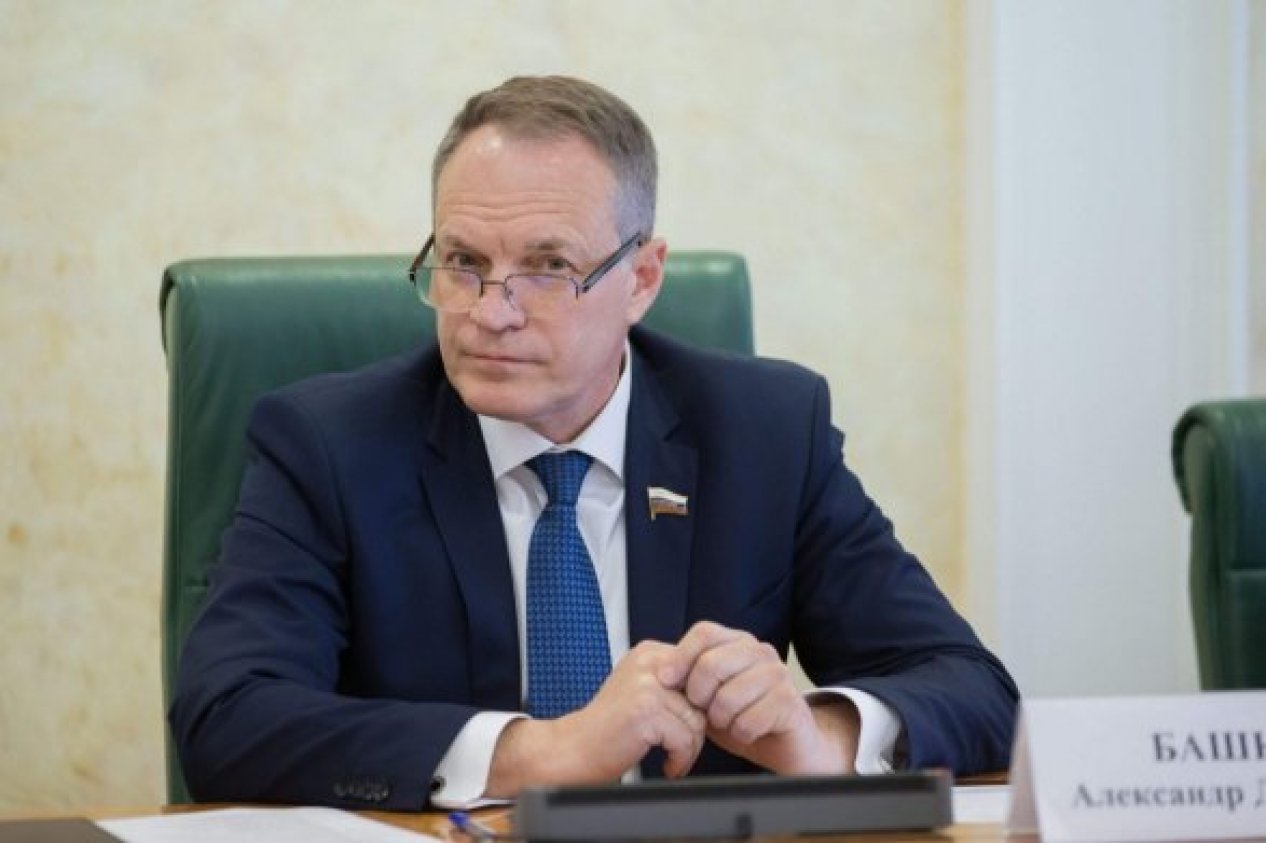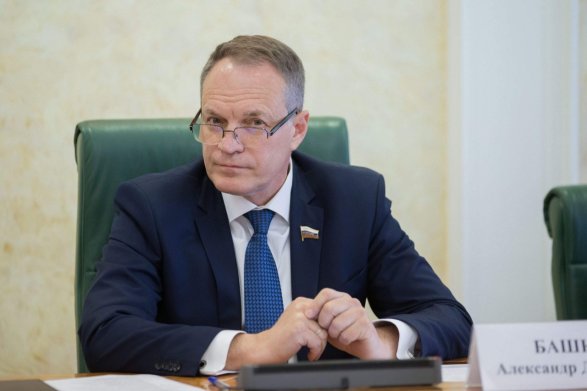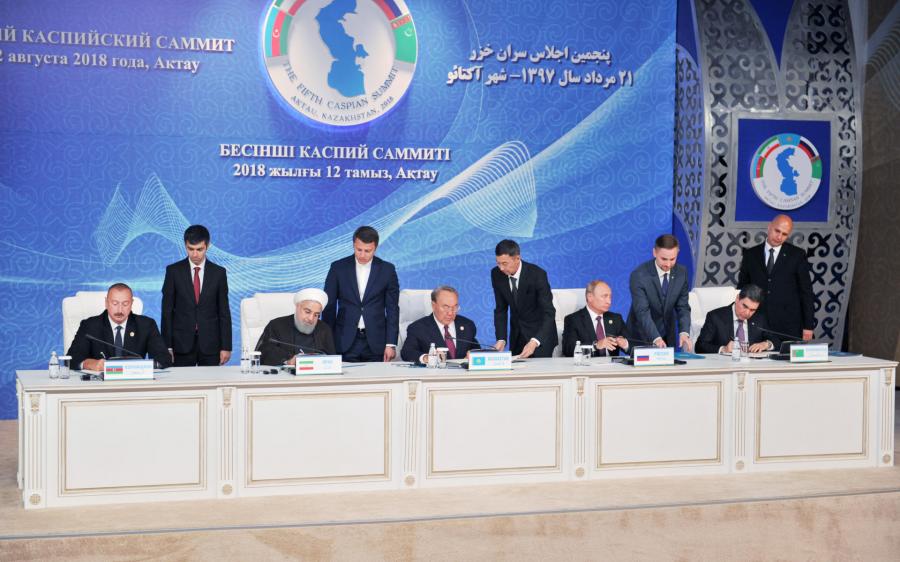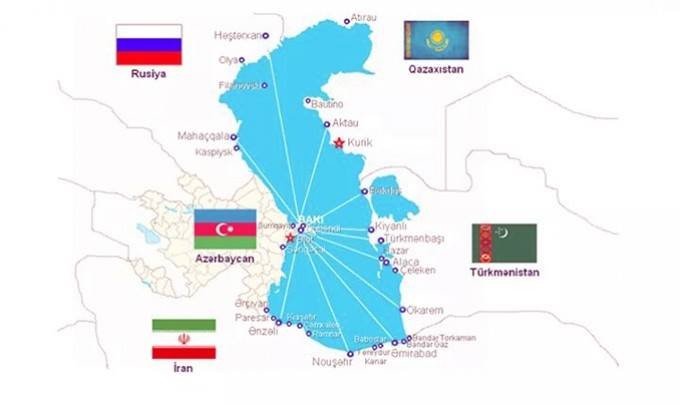
Alexander Bashkin, a Russian senator representing the Astrakhan Oblast in the Federation Council, said that Russia would not allow the construction of a gas pipeline from Turkmenistan to Azerbaijan through the bottom of the Caspian Sea. Bashkin noted that Russia has the right to veto the pipeline's construction per the requirements of the Convention on the legal status of the Caspian Sea, and this step is planned to be taken under that document.
Quote: "According to the document on the status of the Caspian Sea, consent to the implementation of sensitive projects regarding environmental security must be given by each of the five Caspian states. Due to the possible threat to the ecological safety of the Caspian Sea by the underwater part of the gas pipeline, Russia will not be able to agree to its construction." source
It is about the "Interagency Memorandum of Understanding on the Development of Cooperation in the Energy Field" signed by the Heads of State of Azerbaijan, Turkiye and Turkmenistan on December 14, 2022, during the First Trilateral Summit. The document envisages the transportation of the fuel produced from Turkmenistan's gas fields in the Caspian Sea to Azerbaijan, and from there to Turkiye and Europe through the pipeline under the Caspian Sea. source
This project, dubbed the Trans-Caspian pipeline, covers the Caspian Sea bed belonging to Turkmenistan and Azerbaijan and does not touch the border lines of Russia, nor does it pose an environmental threat. However, despite this, the Russian senator claims that Russia will not allow the construction of the Trans-Caspian pipeline, citing the "Convention on the Legal Status of the Caspian Sea."

This statement itself means that Russia's intention to create barriers to the Trans-Caspian is not related to legal aspects or the Caspian Convention, but mainly stems from its political interests and intentions. Moscow is just trying to use the " Convention on the Legal Status of the Caspian Sea" as an excuse and a factor of blackmail.
But what does the Convention, which Bashkin relies on as a reference source, say? Is there an article or restrictive clause prohibiting the construction of a gas pipeline from Turkmenistan to Azerbaijan through the bottom of the Caspian Sea? Faktyokla Lab conducted research on the matter.
The "Convention on the Legal Status of the Caspian Sea" signed by the presidents of Azerbaijan, Iran, Kazakhstan, Russia and Turkmenistan at the summit held in Aktau, Kazakhstan, on August 12, 2018, determines the distribution of resources of the Caspian littoral countries and determines the possible obstacles to the creation of a military alliance in the sea by other forces. The Convention was ratified by the parliament of all the Caspian littoral states, approved by the respective decrees of the heads of state and entered into force. Azerbaijan approved the Convention in 2019. At the same time, the Convention was registered by the Depositary (Article 23) in accordance with Article 102 of the Charter of the United Nations. source

Article 8 of the Convention states that " The division of the bottom of the Caspian Sea into sectors is carried out, taking into account the generally recognized principles and norms of international law, through agreements between adjacent and opposite states, in order to exercise their sovereign rights to the use of the seabed and other legitimate economic activities related to the exploitation of its resources." According to Article 12, "each party, that is, a country, shall exercise jurisdiction over artificial islands, installations, structures and its submarine cables and pipelines within the limits of its sector." Thus, based on that article, Turkmenistan has the authority to use the part belonging to its sector and build the pipeline.
Article 14 of the Convention states that the parties may lay submarine cables and pipelines through the bottom of the Caspian Sea. At the same time, the parties can build underwater trunk pipelines through the bottom of the Caspian Sea, provided that their projects comply with the environmental requirements and standards established in the international agreements to which they are parties, including the Framework Convention on the Protection of the Marine Environment of the Caspian Sea and its relevant protocols. It means a legal basis for bilateral energy cooperation. That article establishes that Azerbaijan and Turkmenistan have the right to build a pipeline through the bottom of the Caspian Sea by complying with the environmental requirements and standards set in the Framework Convention on Environmental Protection and other international agreements they are parties to. The feasibility study of the project also confirms that environmental requirements are fully observed in the area. The Russian senator's opinion that " consent to the implementation of sensitive projects regarding environmental security must be given by each of the five Caspian states" is illogical and has no legal basis.

Also, the Convention (Article 14) establishes that the determination of the route for laying submarine cables and pipelines is carried out in agreement with the Party that owns the seabed sector through which the submarine cable or pipeline will pass. The area through which the new pipeline will cross the bottom of the Caspian Sea, that is, the bottom sector, belongs directly to Azerbaijan and Turkmenistan. It does not belong to the territory of Russia, and the pipeline does not harm other littoral countries' economic and political security. Therefore, the pipeline construction can be carried out by agreement between these two countries. source
Under Article 16 of the document, cooperation with individuals and legal entities of states that are not parties to the Convention, as well as with international organizations in the Caspian Sea, is carried out per the provisions of this Convention. This means that Turkiye, which is not a Caspian littoral country included in the agreement, as well as the European Union, has the authority to be fully involved in the exploration and exploitation of natural resources.
According to the Convention, the Caspian Sea has the status of "sea" as an administrative-geographic territory, and the status is based on the principles of International Maritime Law. That Law defines the rules on how coastal countries use the sea. Along with the coastal countries, other states can also search for and extract resources from the Caspian Sea. This provides a legal guarantee for Turkiye's direct participation in the exploitation of natural resources in Turkmenistan.
Thus, Senator Alexander Bashkin's claims that Russia will prevent Turkmenistan from building a gas pipeline through the bottom of the Caspian Sea to Azerbaijan:
Being frivolous, they are far from reality from a political, economic and legal point of view, especially due to the requirements of the Convention on the Legal Status of the Caspian Sea.
In the Convention on the Legal Status of the Caspian Sea, no article or restrictive clause would prevent Russia or other coastal states from building a gas pipeline through the bottom of the sea to Azerbaijan.
Based on Article 12 of the Convention, Turkmenistan has the authority to use the part belonging to its sector and build the pipeline.
The Russian senator's opinion that " consent to the implementation of sensitive projects regarding environmental security must be given by each of the five Caspian states " is illogical and has no legal basis.




















